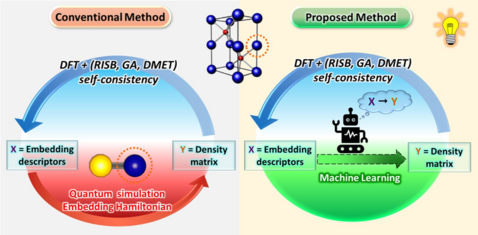Nicola Lanata, IFA and Ove Christiansen, Dept of Chemistry had an idea!
The Villum Experiment Grants seek to reward scientists who question conventional thinking, and thus the idea of "Simulating strongly correlated materials by combining quantum theory with machine learning" has been awarded a grant of DKK 1 930 108,00
Their proposal was submitted anonymously like 400 others, and it goes like this:
Answers to fundamental scientific questions inherent in the so-called “strongly correlated” materials (e.g., the high-temperature superconductors) are still beyond our reach. The main obstacle for solving these problems is that, with presently available theoretical tools, computations are often too slow to be ever feasible. Here we propose an unconventional and ground-breaking method combining quantum theory with Machine Learning (ML) to solve this problem, which may change drastically the way how we approach quantum simulations today, paving the way to virtually infinite applications in condensed matter physics, chemistry and materials science.
conventional calculations compared to calculations involving Machine Learning. Illustration from the grant application.
Simulating the quantum-mechanical behavior of electrons in solids typically requires a computational cost that rapidly increases as we aim to describe the microscopic interactions between the electrons with higher accuracy.
Science director Thomas Bjørnholm of the Villum Fondations says: “The bold idea that you might not dare to mention aloud may challenge acclaimed research even though it doesn’t fit into the conventional peer-review funding system.”
The full press release from the Villum Foundations concerning all 52 grants is available here.

